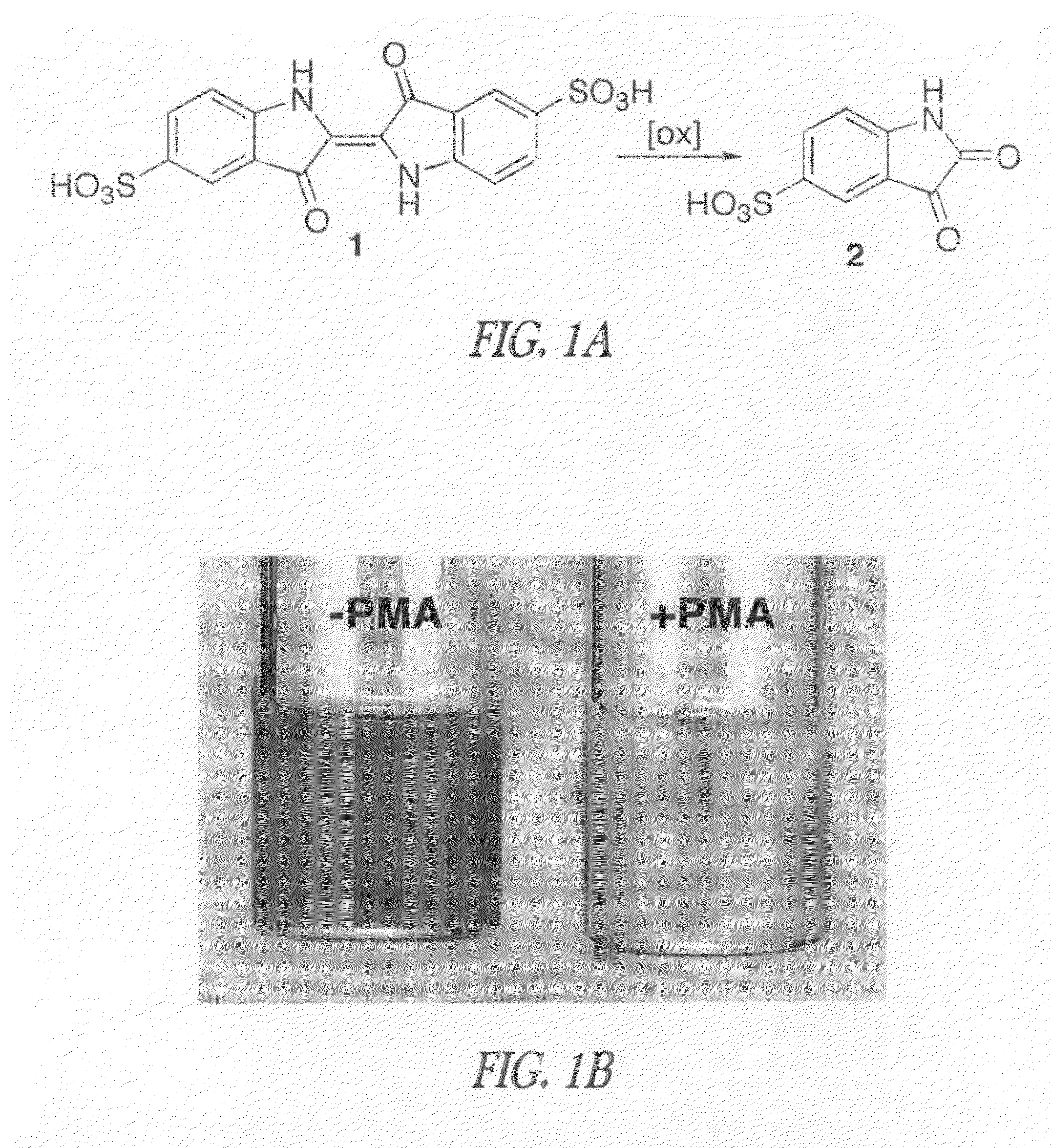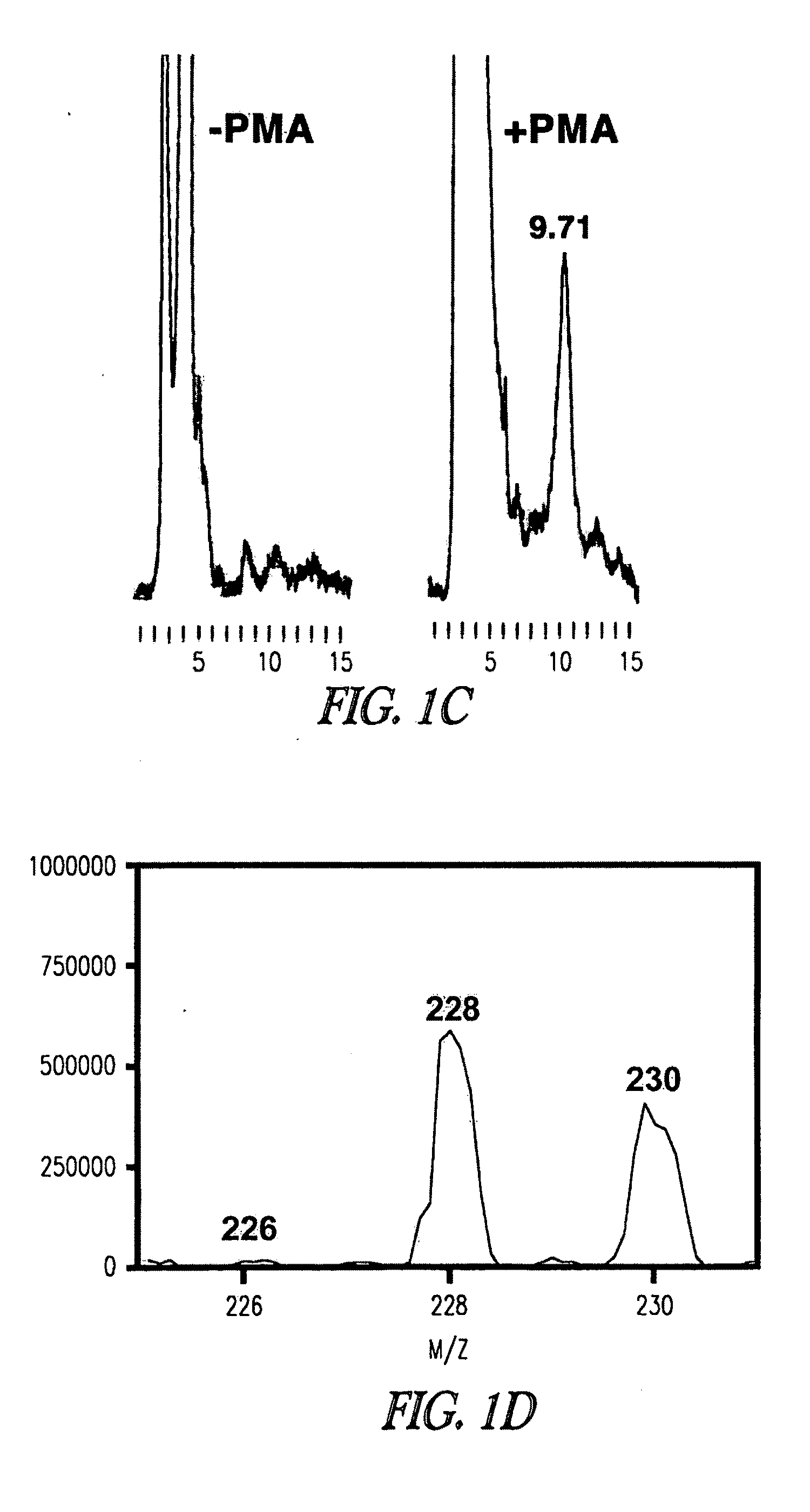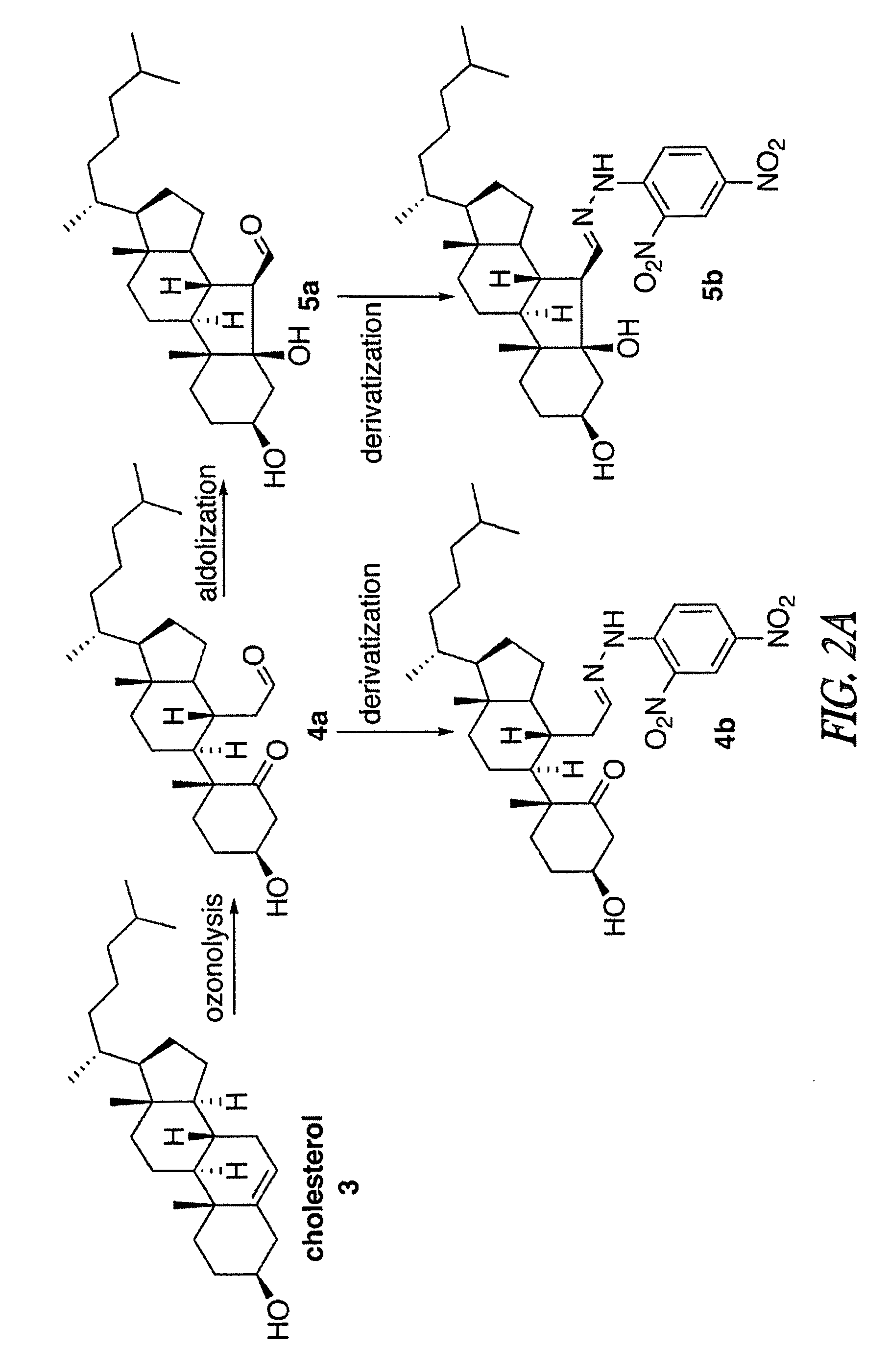Methods to identify therapeutic agents
a technology of therapeutic agents and methods, applied in the field of methods for identifying agents, can solve the problems that the ozonation products of cholesterol can also adversely affect the secondary structure of apoprotein b/sub>100, and achieve the effect of increasing lipid-loading and little effect on lipid-loading
- Summary
- Abstract
- Description
- Claims
- Application Information
AI Technical Summary
Benefits of technology
Problems solved by technology
Method used
Image
Examples
example 1
Materials and Methods
[0263]Operative isolation and handling of atherosclerotic artery specimens. Tissue samples were obtained by carotid endarterectomy. The samples contained atherosclerotic plaque and some adherent intima and media. The protocol for plaque analysis was approved by the Scripps Clinic Human Subjects Committee and patient consent was obtained prior to surgery. Fresh carotid endarterectomy tissue was analyzed within 30 min of operative removal. Note that the plaque samples were neither stored nor preserved. All analytical manipulations were complete within 2 h of surgical removal. No fixatives were added to the specimens.
[0264]Oxidation of indigo carmine 1 by human atherosclerotic artery specimens. Endarterectomy specimens (n=15), isolated as described above, were divided into two sections of approximately equal wet weight (±5%). Each specimen was placed into phosphate buffered saline (PBS, pH 7.4, 1.8 mL) containing indigo carmine 1 (200 μM, Aldrich) and bovine catala...
example 2
Athersosclerotic Plaques Generate Ozone and Cholesterol Ozonolysis Products
[0300]Using the methods described hereinabove, this Example shows that atherosclerotic tissue, obtained by carotid endarterectomy from 15 human patients (n=15), can produce ozone detectable by reaction with indigo carmine 1.
Bleaching of Indigo Carmine by Ozone Produced by Atherosclerotic Plaques
[0301]The inventors have previously that when antibody-coated white cells were treated with the protein kinase C activator, 4-β-phorbol 12-myristate 13-acetate (PMA), in a solution of indigo carmine 1 (a chemical trap for ozone), the visible absorbance of indigo carmine 1 was bleached and indigo carmine 1 was converted into isatin sulfonic acid 2. See, e.g., P. Wentworth Jr. et al., Science 298, 2195 (2002); B. M. Babior, C. Takeuchi, J. Ruedi, A. Guitierrez, P. Wentworth Jr., Proc. Natl. Acad. Sci. U.S.A. 100, 3920 (2003); P. Wentworth Jr. et al., Proc. Natl. Acad. Sci. U.S.A. 100, 1490 (2003). The structure of isatin...
example 3
Cholesterol Ozonolysis Products Exist in the Bloodstream of Atherosclerosis Patients
[0318]The inventors have previously shown that ozone is generated during the antibody-catalyzed water oxidation pathway and that ozone, as a powerful oxidant, could play a role in inflammation. P. Wentworth Jr. et al., Science 298, 2195 (2002); B. M. Babior, C. Takeuchi, J. Ruedi, A. Guitierrez, P. Wentworth Jr., Proc. Natl. Acad. Sci. U.S.A. 100, 3920 (2003); P. Wentworth Jr. et al., Proc. Natl. Acad. Sci. U.S.A. 100, 1490 (2003).
[0319]Inflammation is thought to be a factor in the pathogenesis of atherosclerosis. R. Ross, New Engl. J. Med 340, 115 (1999); G. K. Hansson, P. Libby, U. Schönbeck, Z.-Q. Yan, Circ. Res. 91, 281 (2002). However, prior to the invention, no specific non-invasive method has been available that could distinguish inflammatory artery disease from other inflammatory processes. The unique composition of the atherosclerotic plaque, and the products released by atherosclerotic plaq...
PUM
| Property | Measurement | Unit |
|---|---|---|
| wet weight | aaaaa | aaaaa |
| total volume | aaaaa | aaaaa |
| retention time | aaaaa | aaaaa |
Abstract
Description
Claims
Application Information
 Login to View More
Login to View More - R&D
- Intellectual Property
- Life Sciences
- Materials
- Tech Scout
- Unparalleled Data Quality
- Higher Quality Content
- 60% Fewer Hallucinations
Browse by: Latest US Patents, China's latest patents, Technical Efficacy Thesaurus, Application Domain, Technology Topic, Popular Technical Reports.
© 2025 PatSnap. All rights reserved.Legal|Privacy policy|Modern Slavery Act Transparency Statement|Sitemap|About US| Contact US: help@patsnap.com



